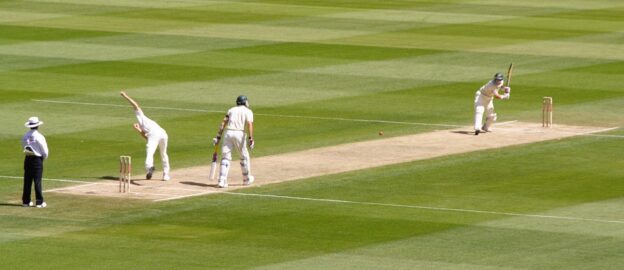In this episode I’m going to continue telling you stories of my recent holiday and there will be descriptions of impressive rocky landscapes, a sort of geology lesson and a brief history of planet earth. Expect plenty of solid descriptive chunks of vocabulary as this holiday diary continues.

[DOWNLOAD]
Some talk of putting shelves up… doing DIY…
Transcript and Notes
In this episode I’m going to continue telling you stories of my recent holiday and there will be descriptions of impressive rocky landscapes, a sort of geology lesson and a brief history of planet earth. Expect plenty of solid descriptive chunks of vocabulary as this holiday diary continues. I think there will be just one more episode to come in this series, and then it will be back to the usual sorts of episodes I do, including a few conversations with some friends of mine as guests.
The first part of the trip was urban. Now it’s all about earth, wind and fire – not the band, but the elements, earth, wind, fire, rocks, stone, water, ice, wood and time.
We drove from Las Vegas on a road trip tour, a loop, in our Jeep, over about 9 or 10 days stopping at various places to stay a night or two and taking in some of the most impressive spectacles of natural beauty I’ve ever seen.
I don’t know about your country – I’m sure that you have some seriously big and impressive locations too. Places that are famous and that take your breath away when you see them. Places and things that I would love to see with my own eyes one day.
In the UK our countryside is absolutely beautiful, but it is generally on a fairly small scale compared to other places – we have rolling hills and stone bridges over babbling rivers – it all seems quite self-contained or cute or something – a bit like The Shire or Hobbiton in Lord of the Rings. Not all of it – we have impressive spots with mountains and lakes and stuff but it doesn’t quite smash your senses like the things we saw in Arizona and Utah.
Every day or two we would be greeted by ever more stunning views as we toured around the border between Utah and Arizona, from Zion National Park and Bryce Canyon National Park to Lake Powell, Horseshoe Bend, Antelope Canyon in the Navajo Nation Territories and finally the Grand Canyon before heading back to Los Angeles via Las Vegas.
America’s National Parks
Think what you like about the USA, I mean, there are plenty of things that aren’t appealing, like.. Pop Tarts – they’re disgusting aren’t they? Say what you like about the country, you can’t deny that it has some truly breathtaking spots of natural beauty.
Thankfully, most of these places were protected by the National Parks project, which was initially set up at the end of the 19th century and then was fully put into force in the early 20th century by the president at the time, Theodore “Teddy” Roosevelt.
The whole area that we were driving around and visiting basically features canyons and cliffs that form what is known as The Grand Staircase. Imagine a big staircase made out of rock, but it’s all spread out over hundreds of miles. In different locations you can see different layers of rock that are exposed because the rock layers have been uplifted, tilted, and eroded. It’s a series of colourful cliffs stretching between Bryce Canyon (in the north of that area) and the Grand Canyon (in the south, basically). Zion is sort of between the two.
The bottom layer of rock at Bryce Canyon is the top layer at Zion, and the bottom layer at Zion is the top layer at the Grand Canyon. So, in terms of the staircase, Bryce is at the top, then Zion in the middle of the staircase and the Grand Canyon at the bottom.
If you were a massive giant, you could start at the riverbed at the bottom of the Grand Canyon and go up the stair case (some of the stairs are huge plateaus of course and moving across them you can visit places like Lake Powell or Monument Valley, where there are eroded tables, platforms and columns that stick up all around you) and walk up the cliffs, the stairs, and pass through Zion and keep going until you get up to Bryce Canyon at the top. On your walk you would ascend through about 40 identified layers of rock, and about 2000 million years of history. The oldest sedimentary rock at the bottom of the staircase is 2 billion years old. The rock at the top is about 40-30 million years old.
So, driving around the area we were going up and then back down this staircase, travelling through hundreds and hundreds and million of years worth of time as well as hundreds of miles of distance.
This is one of the only places in the world where this much of the earth’s history is exposed to us, and because of that – because so much old rock is exposed in this area, it is one of the most studied geological areas in the world.
These 40 layers of rock are full of evidence that show us what happened in this area in the past, and that allow us to understand a lot about what happened in history – way before humans even existed. The story is told in the rock, including fossils of many dinosaurs.
As well as that, it’s just amazing to look at. The layers of rock have different colours. Some are rust coloured, some yellow, some pink, some white, some grey, some a deep blood red. The different colours are caused by different chemical reactions in the rock – things like the presence of iron which oxidises and changes colour – a bit like the way an old bicycle will go rusty as the metal reacts with the water.
So our entry point into this grand staircase was Zion National Park. We spent a day and a half there and did a fairly easy hike up the side of the canyon to a viewpoint. We were very careful and cautious of course, this time.
Then we drove in a northerly direction to BRYCE CANYON.
Bryce Canyon

Bryce Canyon is the highest point in the grand staircase. We drove up towards an elevated point on one side of the canyon. The usual thing to do there is to drive to the end of this point and then drive back, stopping at certain viewing points on the way.
So at Rainbow point we stopped the car and walked to the edge, where there are barriers and information points and so on.
Imagine standing on the edge of some cliffs and in front of you there’s a huge canyon – a massive area where the ground goes down quite sharply and there are thousands of bits of rock that stick up on top of huge blocks of rock of different colours and they look a bit like huge statues and there are river beds in there at the bottom and trees growing up from the bottom, and big bits of rock that stretch out into the canyon, and way way over on the other side (almost on the horizon) is the other side of the canyon. So you’re standing on the edge of a plateau, it all goes down, and then the plateau continues again way over on the other side. You can see the layers of rock – all different colours.
Now, this is all caused by erosion and the rocks that stick up in the canyon are all really weird shapes. It’s really stunning and weird too. It’s like an alien landscape. I’ll give you some more details in a moment.
At rainbow point we saw a guide explaining all of it and how it fits into the grand staircase.
He was doing a great job of telling the massive story of the place and enthusiastically putting himself into it.
This helped us understand a lot of the geology of the whole area.
I’ve already told you some stuff about the grand staircase, and it’s pretty difficult to explain but I’d like to try and give you some more details of the story of how all of this happened. This is what I understood from the ranger – this guy employed by the park, wearing a green outfit and a wide brimmed hat.
So this is ancient history and geology.
By geology I mean the study of the Earth’s structure, surface, and origins.
So, we’ve had space, we’ve had belief systems, and now the history of the earth itself. I told you I had a lot of stuff to get off my chest in this series of podcasts!
I’m talking about the history of the earth.
A Short History of the Earth (according to the Big Bang Theory)
How about we start right at the start? The Big Bang theory – not the TV show, but the account of how the universe began, which is based on a lot of study and a lot of analysis of evidence and understandings of the way the universe works – the collaborative work of many people over many years, people analysing the evidence, creating hypotheses, testing them, coming up with theories that get adapted and improved and disproved and further changed. The big bang theory is the best we have at the moment.
So, at one point the universe was all compressed into a space about the size of a pin head. All matter that exists now in the universe, all of it was at one point contained in a tiny little spot, a singularity. An extremely high density and high temperature singularity.
Physicists are undecided whether this means the universe began from a singularity, or that current knowledge is insufficient to describe the universe at that time… Detailed measurements of the expansion rate of the universe place the Big Bang at around 13.8 billion years ago, which is thus considered the age of the universe. After the initial expansion, the universe cooled sufficiently to allow the formation of subatomic particles, and later simple atoms. Giant clouds of these primordial elements later coalesced through gravity in halos of dark matter, eventually forming the stars and galaxies visible today.(Wikipedia)
This is just what we know today. There’s still a lot we don’t know – like exactly what ‘dark matter’ is. But that’s the point of science – we don’t have to be able to explain it all at once, we’re working it out bit by bit.
So after all that matter came together through gravity and the stars were created (over an incredibly long period of time by the way, and it’s still going on now) earth also formed from matter that was basically left over from when the sun was created – we’re talking about cloud and dust particles containing all the elements that make up the building blocks of everything on earth.
This stuff coalesced into this ball due to the force of gravity. In the early days the earth was very hot and was basically molten lava, and was hit by lots of other lumps of rock that were still flying around the galaxy. A lot of this rock, left over from the sun’s creation still exists in space and is orbiting our sun too. Most of it is in the asteroid belt which is located between the orbits of Mars and Jupiter. There are also loads of asteroids which are not in this belt, just flying around our solar system on different orbits around the sun. We’re pretty sure that one or two of them hit the earth in the past and probably wiped out the dinosaurs – because if a huge asteroid hits the earth it creates an explosion which is like loads of nuclear bombs all going off at the same time, and that tends to make life on earth a little bit tricky, like for example when the sun gets blocked out by dust or when the atmosphere is filled with poisonous gas from the explosion.
One might hit us one day too, which would be pretty bad news as I’m sure you can imagine, but if we’re clever we’d be able to prevent it by sending Bruce Willis up there to blow it up before it hits us.
After earth cooled down, the molten rock on the surface cooled down to become the earth’s crust. THat’s a bit like if you leave some soup out for ages and the top becomes a thick layer and if you leave it out for ages (like you go away travelling for a few months and don’t do the washing up before you leave) eventually it’ll dry out and form a hard crust.
So the surface of the earth was this crust, made up of a number of different plates. It’s not all one single crust, because underneath it’s all still molten rock – you know, because as you go deeper underground eventually it get really hot and ooh magma! Lava is the stuff that spews out of the top of volcanoes. It’s amazing but it’s not very friendly.
So the earth’s crust is made up of a number of plates that sit on top of this magma. On top of these plates you have land with different features. Some of it is covered in grass, some of it is covered in water, some of it is just rock, etc etc.
Different types of rock
Igneous rock – this is the stuff that is formed when magma cools down. Sometimes it cools down when it’s in the ground and sometimes it cools down on the surface after being spewed out of volcanoes as lava.
Metamorphic rock – this is the stuff that is formed when magma cools under the ground but in certain conditions, like when there’s massive amounts of pressure or heat and the rock gets compressed and it changes quite drastically – for example it becomes crystal or the rock has layers of crystal in it. It’s often extremely hard rock and it can be shiny, or striped with layers of crystal in it. E.g. diamond is metamorphic rock because it has changed from pure carbon (or coal – a sedimentary rock) into diamond.
Sedimentary rock – this is the stuff that usually forms on or very near the surface. It’s made of particles of sand, shells, pebbles (little stones) and other fragments of material. Imagine you have a fish bowl with some fish in it and you go away travelling for 3 months and you forget about it. Eventually the water in that fish bowl will get dirty.
First there are the little stones at the bottom, then there might be dust from the room that lands in the water and of course there’s the fish poo and the green algae that might build up inside there and the water gets cloudy and dirty and eventually the fish will probably die (I know it’s a sad story) and over time all that stuff in the water will settle on the bottom of the tank – that’s sediment. Imagine that over millions of years. Now imagine it’s the ocean which is washing over the surface of rocks and eroding them, creating more sand, and also think of all the sediment – sand and little stones that get washed into the ocean from rivers. All that stuff is sediment and it finds its way to the bottom of the ocean and gets compressed.
Oceans or lakes don’t last forever and they sometimes dry out, exposing all the compressed sedimentary rock. That might get blown by winds into big sand dunes, which then eventually compress, or at least the sand that was once at the bottom of the ocean or lake dries out and over time it compresses more until it becomes rock.
This is not just useful for describing types of rock. The word ‘sediment’ is used in other situations too, like we get sediment at the bottom of a bottle of wine sometimes, or in fruit juices – any stuff that has settled at the bottom of liquid.
Also ‘metamorphic’ is in the same word family as ‘metamorphosis’ – the process of when something changes into something else.
e.g.
the metamorphosis of a caterpillar into a butterfly
She had undergone an amazing metamorphosis from awkward schoolgirl to beautiful woman.
(Oxford dictionary)
Igneous – not useful outside this subject. It’s just for rocks, except that it’s formed from the latin ‘ignus’ which means ‘fire’ and from ‘ignus’ you also get the English word ‘ignite’ and that’s a good word. It means ‘start to burn’ or ‘make something start to burn’.
E.g. “Gas ignites very easily”, or “the hot weather made it much more likely that the forest would ignite.”
It can also be used as a metaphor, especially with words like “controversy” or “debate”.
“Donald Trump’s words ignited controversy for the 2nd time this week…”
So that’s igneous rock, metamorphic rock and sedimentary.
Terrible Jokes
I’ve got a (terrible) pun for you.
Sherlock Holmes and Dr Watson are on a geology field trip, walking near a lake. Watson spots something interesting and says “Holmes, what kind of rock is this?”
Holmes says “Sedimentary, my dear Watson”.
Rubbish isn’t it. Obviously, it’s because Holmes is famous for saying “Elementary my dear Watson”. It’s a pretty easy joke to adapt.
Holmes and Watson are wondering through a weird alien land where everything is made of chocolate. Watson says “what’s this massive tree with red and yellow sweets on it?”
“M&M tree, my dear Watson.”
I challenge you to come up with a pun for igneous and metamorphic rock…
Anyway…
How do you know what kind of rock is which?
If it’s got little bubbles in it? Igneous
Got some little crystals in it, or some little bits seem shiny? Igneous (e.g. granite – that hard grey rock which is used to build really good quality things – like a really solid good quality wall outside a bank, or an impressive modern monument in the centre of town)
Got some lines or bands in it (not musical bands, unless it’s Dinosaur Jnr, lol) It’s igneous
Has it got fossils in it? Dead animals that got compressed, preserved and petrified? Sedimentary
Sand or pebbles in it? It’s sedimentary
Breaks apart fairly easily? It’s sedimentary
Looks like it was formed in layers? It’s sedimentary
Glassy surface and sharp edges, like flint? ? It’s metamorphic
A big beautiful crystal? It’s metamorphic
Diamonds? It’s mine. It’s fine, just give it to me.
Continuing the story…
The atmosphere in earth is made from gasses that were released from the bubbling cauldron of magma under the surface and which were ejected into the air through volcanoes. All that gas created our atmosphere and we’re lucky in that this combination of gasses is just right for sustaining life.
So all the land and sea and all that stuff is on the surface of these tectonic plates. All the land masses on the top which are exposed above the water layer – these are the continents, countries, islands etc. Now, the tectonic plates under the ground move around all the time – very slowly from our perspective, but they do move over time.
Let’s say that at one point the countries we all live on were in different positions, because the tectonic plates that underpin everything on earth were in different places.
The land on top of those plates is made up of the outpourings of volcanoes and also layers of sedimentary rock which is the result of erosion of different kinds. Rock that is spewed out of volcanoes gets eroded over time and the sediments are carried into the ocean or lakes from glaciers at the top of mountains down through rivers and out into the sea.
The sediments then become sand at the bottom of oceans and lakes.
There was a big ocean over these parts of the USA many many millions of years ago. That ocean dried up in the sun and revealed the sediments at the bottom.
The part of the USA where Bryce Canyon is located now has occupied different points of latitude over the years. Basically, that area in Arizona used to be further south. At one point it was equatorial (on the equator), and as the tectonic plates shifted the continent moved and it went north and became sub-equatorial, which is that part just above or below the equator (above in this case) that tends to be super hot and dry – deserts like the Sahara are sub-equatorial.
As this ocean dried up and the sandy sediment was exposed to the sun in sub-equatorial conditions like that it became a huge desert covered with sand dunes being blown around by the wind.
Those dunes built up and up and over millions of years the pressure of their own weight solidified them into sandstone rock.
The heat of the sun baked it and traces of iron in the stone reacted with moisture causing this rust coloured rock you can see everywhere (like the way rust appears on an old bike).
So, imagine a huge plateau of sandstone rock, baked by the sun. A massive plateau that covers an area of hundreds of square kilometres.
I’m sorry I’m not sure of the time frame here but we’re talking about stuff that happened hundreds of millions of years ago and changes that occurred over that period, give or take a few hundred million years. I can’t even imagine that much time, but it’s a really really long time. Even longer than this episode of the podcast.
By the way, here I am talking to you about geology. I’m just an English teacher remember. There might be some of you out there who are actual geologists and I don’t want you to feel like I’m, what, teaching my grandmother to suck eggs (that’s an old expression which means – teaching something to someone who already knows it).
Anyway, I’m just trying to give some context. About 3.5 billion years of context. Ha!
This is stuff that I read about when I was there because it helped us to understand the significance of the place that we were visiting.
So, tectonic plates are moving under the surface all the time. Sometimes the plates push against each other or rub over each other, causing the land on the surface to rise.
That activity creates mountain ranges and sometimes volcanoes. The mountain ranges then eventually get glaciers forming on top as moisture collects there, it snows and the snow gets ever more compact and turns into lakes of ice – glaciers. Those glaciers slowly move down the mountain because of gravity and they scrape and crush all the rock from the mountains, carving out valleys as they go. As the glaciers get lower and they melt their rivers carry stones and rock sediments out to sea.
These are the sediments needed to make these big sandstone plateaus which are exposed when an ocean dries up. In this case these mountains are the rocky mountains to the north – that’s where all the sediment originally came from.
These tectonic plates move everything on the surface around over millions of years so that Bryce Canyon and the whole Grand Staircase has kind of shifted north from an equatorial zone, to a sub-equatorial zone to its present location.
Also volcanic activity underground can push the land up – not just forming mountains, but whole areas can be lifted up. You might end up with a whole plateau rising up over many years, turning it into high ground – not a sudden mountain, but a gradual swell over hundreds of miles, so that what was once the bed of the ocean becomes a huge plateau that’s at quite a high altitude.
That’s what happened at Bryce and the surrounding areas.
The whole thing that used to be this ocean floor and a lake basin, got pushed upwards to form this high plateau of sandstone. A lot of it is also limestone from deposits of things like shells or animal matter that was in the water. There are loads of fossils in this area and you can track the evolution of animals by comparing evidence from each stage in the staircase. It’s like a time ladder or something – it tells you the story of life.
So this sandstone with a limestone layer on top becomes a high plateau. Like I said before, remember, if you stand on the edge of Bryce Canyon (which is not actually a canyon because there’s no significant river at the bottom – unlike the Grand Canyon which has the Colorado river running through it) If you stand on the edge, like my wife and I did, you can see in the distance, on the horizon the other part of this plateau, but in the middle now there’s a huge series of canyons with massive bits of rock that stick up in ridges, and on the top of each ridge there are tall towers of rock in all sorts of weird shapes, and they have different lines of colour depending on what layer in the staircase they are from.
This whole place was formed from that plateau.
Here’s how that happened.
Basically, cracks formed in the top of the plateau as it rose. A bit like when cracks appear on the top of a cake as it rises.
Over millions of years these cracks were subject to erosion – the movement of things like water or ice and maybe wind.
At the top of the plateau moisture freezes in winter to become ice. The ice sits like a layer on top of everything. During the day it melts a bit and then flows into the cracks. At night it freezes again, and we know that water expands when it freezes (imagine leaving a bottle of beer or wine in the freezer – it cracks the glass because the liquid has expanded as it froze) so as the water trickles into existing cracks in the rock and then freezes again and expands it cracks the rock.
The water/ice works its way down, cracking the rock as it goes. Some of the rock is harder than other parts so not all of it gets cracked – not all of it disintegrates. So these creepy looking towers are left behind by the erosion of the ice and water.
It’s like the ice, the water and just the passage of time have worked on these towers of rock, sculpting them into different shapes that stand like statues above the open space of the canyon below them.
Below that the trickling water and wind smooth out these gullies and creek beds that go down and down into the canyon.
So you can walk down into these little riverbeds, down the sides of the canyon and walk around looking up at the towers of rock.
You commune with the rock formations.
To the native Americans who used to live here, these places were very sacred and special and they believed that spirits lived in the rocks. In fact they saw the faces of loads of different spirits and gods in the stones when they looked at them.
As you see all these abstract shapes your mind attempts to make sense of it and it’s easy to see faces, animals and even little stories in the formations. You know when you see big clouds in the sky and sometimes they look like things – like, “that one looks like a dog!” or “that one looks like a face” or “That one looks like Donald Trump and Kim Jong Un kissing” or something, there are hundreds of faces in the rocks. It’s stunning to look at.
Actually, ‘seeing faces or shapes in rocks or clouds’ is a recognised phenomenon called
Pareidolia ( is a psychological phenomenon in which the mind responds to a stimulus, usually an image or a sound, by perceiving a familiar pattern where none exists (e.g., in random data).
Common examples are perceived images of animals, faces, or objects in cloud formations, the Man in the Moon, the Moon rabbit, hidden messages within recorded music played in reverse or at higher- or lower-than-normal speeds, and hearing indistinct voices in random noise such as that produced by air conditioners or fans.[1] (Wikipedia)
Basically, when your mind is presented with a stimulus – like a pattern or just random sounds, it tries to make sense of it and often will kind of read the stimulus as something familiar. This probably accounts for the way people can see ghosts in swirling mist, or they can see images of Jesus in toast or something. Either that or Jesus is trying to tell us something and putting his face in toast is the only way he can do it.
These towers in Bryce Canyon are called “Hoodoos” (sounds a bit like voodoo doesn’t it) and some of them have very human forms. They look a bit like old Roman statues, worn away be the rain. Or they look like architecture by Gaudi the guy who designed various buildings in Barcelona, like the Sagrada Familia cathedral.
In any case they look like spooky, ghostly statues standing in these huge auditoriums made from the erosion of rocks over millions of years.
It’s incredible and a lot more powerful than any of the art we saw in Los Angeles.
Genuinely breathtaking stuff.
After an afternoon of being wowed by the spectacle of Hoodoos and a big naturally occurring bridge in the rock we did a moderate hike into the canyon. This was late afternoon so the whole place got flooded with this incredible orangey pinkish rust coloured light. It was absolutely amazing.
A MOUNTAIN RANCH
Buffalo in the field (though we can’t see them), chickens running around.
Cows and horses.
Slept in a little wooden cabin.
Absolutely insane stars in the night sky. The milky way is incredible. No light pollution. It’s like someone has poured milk into black coffee.
At this point we enter the Navajo Nation.
To be continued!
Photos
-

-
Bryce Canyon
-

-
Bryce Canyon
-

-
Zion National Park
-

-
Bryce Canyon
-

-
Bryce Canyon
-

-
Bryce Canyon (Hoodoos)
-

-
Bryce Canyon
-

-
Bryce Canyon, natural bridge
-

-
Zion National Park
-

-
Zion National Park
-

-
Bryce Canyon, Thor’s hammer (on the left)
-

-
Bryce Canyon
![]()



































